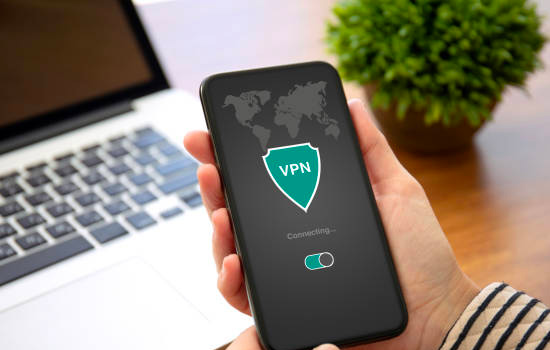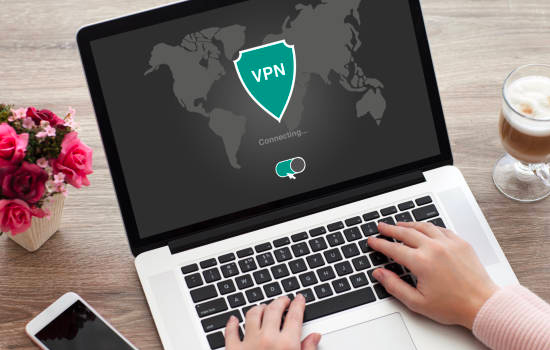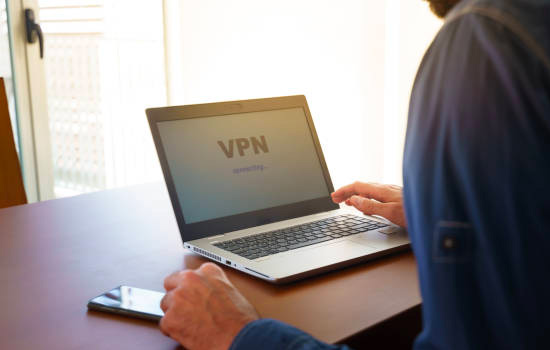
One of the effects of the pandemic has been to increase the amount of remote working, both as working from home and allowing third-parties access to corporate systems. Many organisations have been forced to move to e-commerce as their main income generator.
This has increased the importance of online security since opening systems to external access introduces a larger attack surface and the potential for hostile attacks. The FBI has noted that online attacks, particularly ransomware have increased in frequency and virulence over the last two years.
In the past, IT controlled what was attached to the network and could enforce standards that ensured online security. Today, remote access by third parties and BYOD relinquishes that control. New tools and techniques are needed to provide adequate online security.
What is VPN?

Simply put, a VPN extends your private network across public networks, enabling you to send data as if remote devices were directly attached to your private network. It does so using encryption, and often a challenge/response logon procedure. It can also hide your personal IP address, therefore providing anonymity.
A public VPN moves all your traffic through its own server where it is encrypted. It then forwards your traffic to the ultimate destination, where it is seen as coming from the VPN server, not your IP address.
Corporates can set up private VPNs with user authentication using a corporate VPN service and downloadable user connection and authentication applications.
Benefits of VPN

Using a VPN can improve your online security in several ways:
-
Privacy. A VPN can hide your online identity. When a VPN hides your true IP address and encrypts your online traffic, it essentially makes sure your digital activities can’t be tracked on the Internet. This reduces surveillance, spam and those annoying pop-up adverts.
-
Data Security. Because your network traffic is encrypted, it cannot be read, even if intercepted. Man-in-the-middle exploits become impossible.
-
Authorised users only. Corporate VPNs and some private VPNs include logon or challenge/response procedures. This restricts who can logon to the VPN, again increasing online security.
-
Reduces Bandwidth Throttling. For private users, some ISPs implement a “Fair Use Policy” that limits internet speed and bandwidth for some activities, for example, online gaming. By encrypting your traffic and hiding your IP address, your ISP cannot monitor your usage.
The Downsides of Using a VPN

As usual, there are downsides. VPNs are no exception:
-
A reduction in connection speed. The additional routing via the VPN server and the time taken to encrypt the traffic adds a little additional transit time and a reduction in effective connection speed.
-
Trust Issues. You are entrusting your online security to the VPN service provider. If the provider is untrustworthy that could be a problem. They could track your Internet activity and in a log and sell it to a third party.
In some countries, they could even be forced to share that information with the government and its agencies. There is an information-sharing agreement called the 5/9/14 Eyes Alliance, which in essence allows information sharing between the US, UK, EC and several other countries. If keeping your activities private is absolutely essential, you must use a VPN service provider with a strict no-logs policy.
-
Blocking. Some websites check your IP address against a list of known VPN IP addresses and block access if you are using a VPN.
This is especially true of PayPal and other financial services. They routinely identify users who have changed their IP address as a security breach and block them. Usually, they require identity confirmation before allowing a user to proceed to the site. If the new address is a foreign one, then the block might be total.
-
Legality. Using a VPN is unlawful in some countries. Among others, Iraq, China, Russia, and North Korea absolutely forbid the use of a VPN. Some countries like the UAE force users through a government VPN that blocks access to sites they consider subversive or go against their definition of decency.
In summary, VPNs are an essential tool for safely browsing the web and providing secure access for remote users to corporate networks. They reduce, but don’t eliminate the possibility of cyberattacks, and allow us to bypass Internet geo-restrictions and censorship. While they are not a perfect solution, they can be of great benefit.
